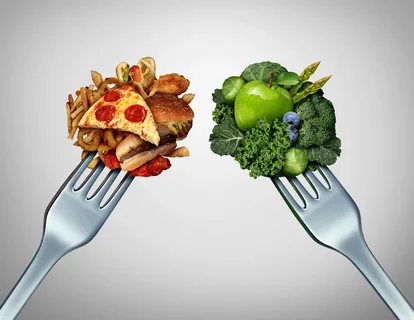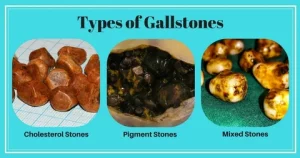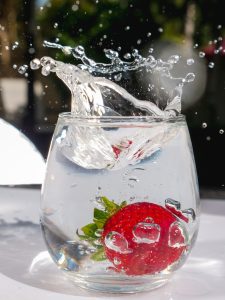- 20 February 2024
- 255
Gallstones Unveiled: The Role of Diet in Gallbladder Health

Introduction
Gallstones are a common medical condition that affects millions of people worldwide. These small, pebble-like formations can develop in the gallbladder, a small organ located beneath the liver. While gallstones may not always cause symptoms, they can lead to severe pain and complications if left untreated. In this comprehensive guide, we will explore the role of diet in maintaining gallbladder health and preventing the formation of gallstones.
Understanding Gallstones
Before delving into the role of diet, it is essential to understand what gallstones are and how they form. Gallstones are hardened deposits that can vary in size from a grain of sand to a golf ball. They are primarily composed of cholesterol or bilirubin, a pigment produced by the liver.
Gallstones can form when there is an imbalance in the substances that make up bile, a digestive fluid produced by the liver and stored in the gallbladder. Factors such as excess cholesterol, bilirubin, or a lack of bile salts can contribute to the formation of gallstones. Additionally, other risk factors such as obesity, rapid weight loss, a sedentary lifestyle, and certain medical conditions can increase the likelihood of developing gallstones. Explore more About Health

The Role of Diet
Diet plays a crucial role in gallbladder health and can influence the formation of gallstones. By making mindful dietary choices, individuals can reduce their risk of developing gallstones and support overall gallbladder function. Here are some dietary recommendations to consider:
1. Maintain a Healthy Weight
Obesity is a significant risk factor for gallstone formation. Excess body weight can lead to increased cholesterol levels in the bile, which promotes the formation of gallstones. Therefore, maintaining a healthy weight through a balanced diet and regular exercise is essential for gallbladder health.
2. Consume a High-Fiber Diet
Fiber-rich foods, such as fruits, vegetables, whole grains, and legumes, play a vital role in preventing gallstones. Fiber helps regulate digestion and promotes the proper functioning of the gallbladder. Additionally, a high-fiber diet can help control cholesterol levels and reduce the risk of gallstone formation.
3. Limit Saturated Fats and Trans Fats
Diets high in saturated fats and trans fats can increase cholesterol levels in the bile, contributing to the formation of gallstones. To support gallbladder health, it is essential to limit the consumption of foods high in these unhealthy fats. Instead, opt for healthier fats found in sources such as olive oil, avocados, nuts, and fatty fish.
4. Incorporate Healthy Foods
Certain foods have been shown to have protective effects against gallstones. These include:
- Fruits and Vegetables: Rich in vitamins, minerals, and antioxidants, fruits and vegetables support overall health and may help prevent gallstone formation.
- Whole Grains: Whole grains such as brown rice, quinoa, and oats are excellent sources of fiber and nutrients that promote gallbladder health.
- Lean Proteins: Choose lean sources of protein such as poultry, fish, tofu, and legumes instead of fatty cuts of meat.
- Low-Fat Dairy: Opt for low-fat or fat-free dairy products to reduce the intake of saturated fats.
5. Stay Hydrated
Proper hydration is essential for maintaining gallbladder health. Drinking an adequate amount of water helps keep bile fluid and prevents the concentration of cholesterol and other substances that can lead to gallstone formation. Aim to drink at least eight glasses of water per day and hydrate with other fluids such as herbal tea and infused water.

Conclusion
In conclusion, diet plays a significant role in gallbladder health and the prevention of gallstones. By adopting a balanced diet rich in fiber, healthy fats, and essential nutrients, individuals can support optimal gallbladder function and reduce their risk of developing gallstones. Additionally, maintaining a healthy weight and staying hydrated are essential components of a gallstone-preventive lifestyle. By following these dietary recommendations and making mindful choices, individuals can take proactive steps to safeguard their gallbladder health and overall well-being.

